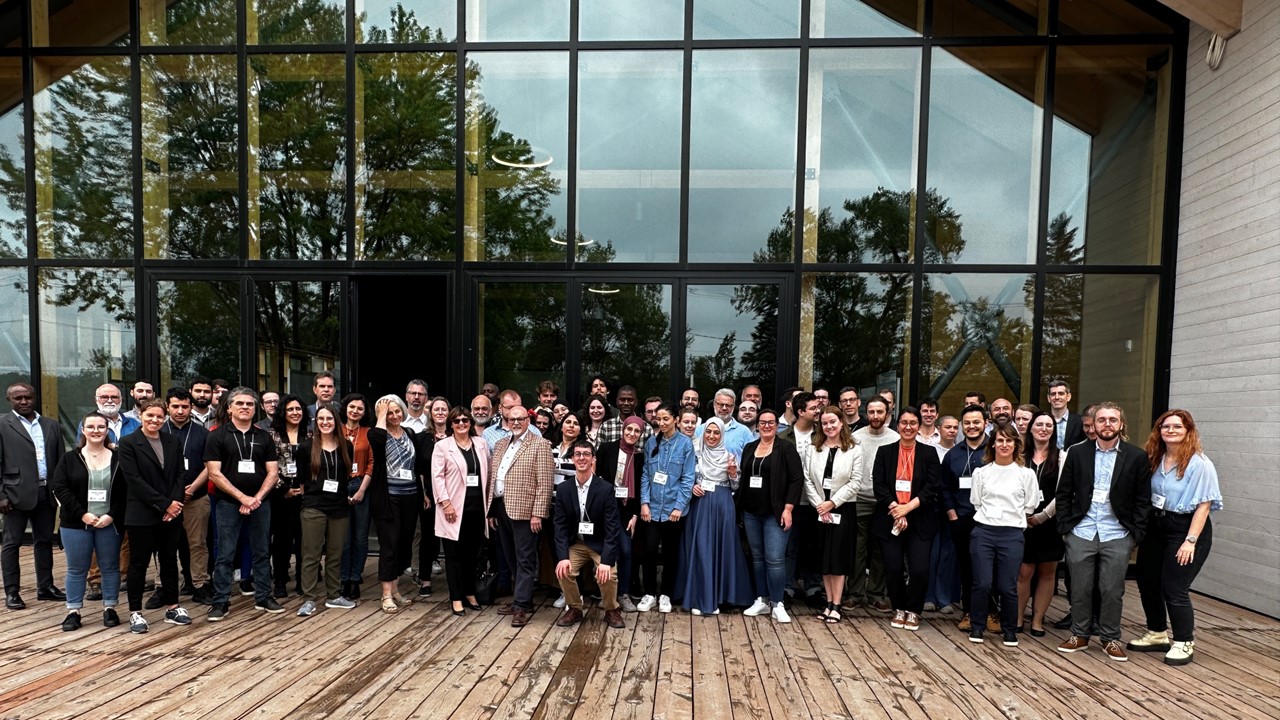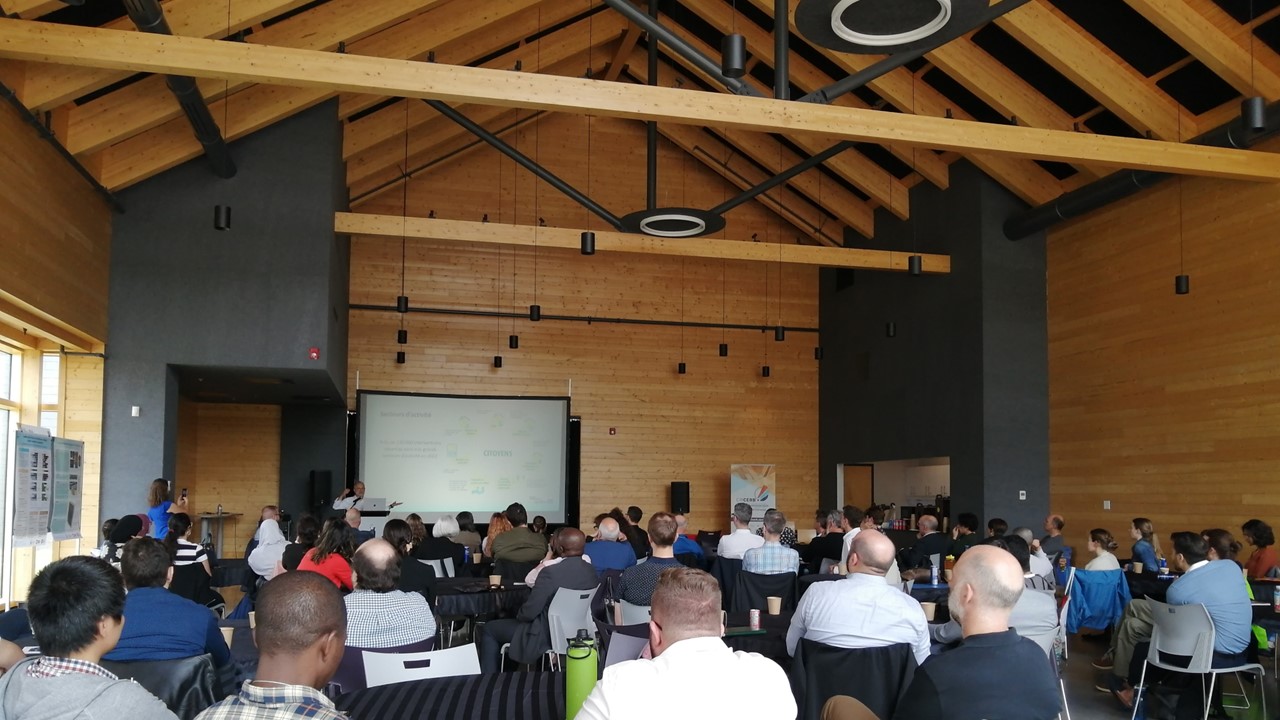A great success for the 2023 edition of the CIRCERB Summer School!
The 2023 edition of the Industrial Research Chair on Eco-responsible Wood Construction (CIRCERB) summer school took place on June 14, 2023, under the theme «Building at the heart of climate issues». Celebrating the Chair’s 10th anniversary, the event was a resounding success! Held in the magnificent wood-frame multifunctional hall of the Base de Plein-Air Ste-Foy, the event brought together 85 participants, including students, professors and the Chair’s industrial and government partners.

The morning session provided an opportunity for networking and knowledge transfer between all participants, while in the afternoon, renowned speakers such as Mr. Pierre Corriveau, President of the Ordre des architectes du Québec, Mr. Claude Foster, CEO of the Société d’habitation du Québec, Mr. Serge Cormier, Vice-President of Construction at the Fonds immobilier solidarité FTQ and Ms. Silvia Garcia, Vice-President of Regulation and Innovation at the Régie du bâtiment du Québec, spoke about their vision, background and expertise in relation to the day’s theme.
This new edition of the CIRCERB summer school was a unique opportunity for students to broaden their skills and develop their networks of contacts by exchanging with speakers from backgrounds as diverse as academia and industry/business. It was also an opportunity to highlight the importance of wood construction and sustainable building as tools in the fight against climate change.
« Les milieux immobilier et bancaire doivent développer des critères d’évaluation environnementale pour guider leurs investissements » –Serge Cormier, vice-président à la construction aux Fonds immobilier de solidarité FTQ.
« L’harmonisation des codes est une démarche qui permettra au Québec d’être au cœur du processus de mise à jour du Code national du bâtiment (CNB) » –Silvia Garcia, vice-présidente réglementation et innovation à la Régie du bâtiment du Québec
« Au Québec, 87 % des émissions d’un bâtiment alimenté à l’hydroélectricité proviendraient de sa construction. Ces données montrent l’importance de s’attaquer non seulement à l’efficacité énergétique des bâtiments, mais surtout au carbone intrinsèque » – Pierre Corriveau, président de l’Ordre des architectes du Québec.
« Face aux changements climatiques, il faut faire évoluer les pratiques. On peut travailler sur deux axes : réduire les émissions de GES provenant de l’énergie et des matériaux et augmenter la résilience des habitations » –Claude Foster, PDG de la Société d’habitation du Québec.

The CIRCERB would like to thank its partners and collaborating research members, and applaud the exceptional involvement of its team in making this activity a remarkable success!

